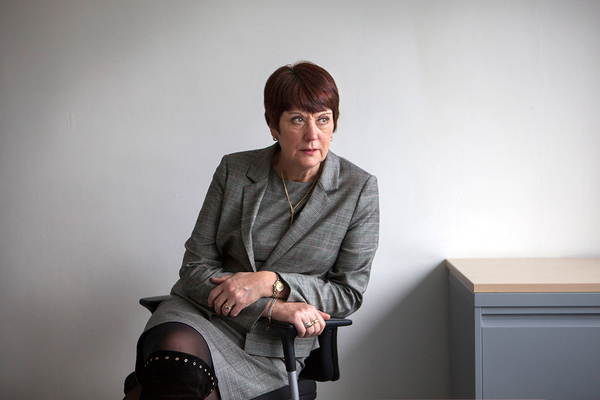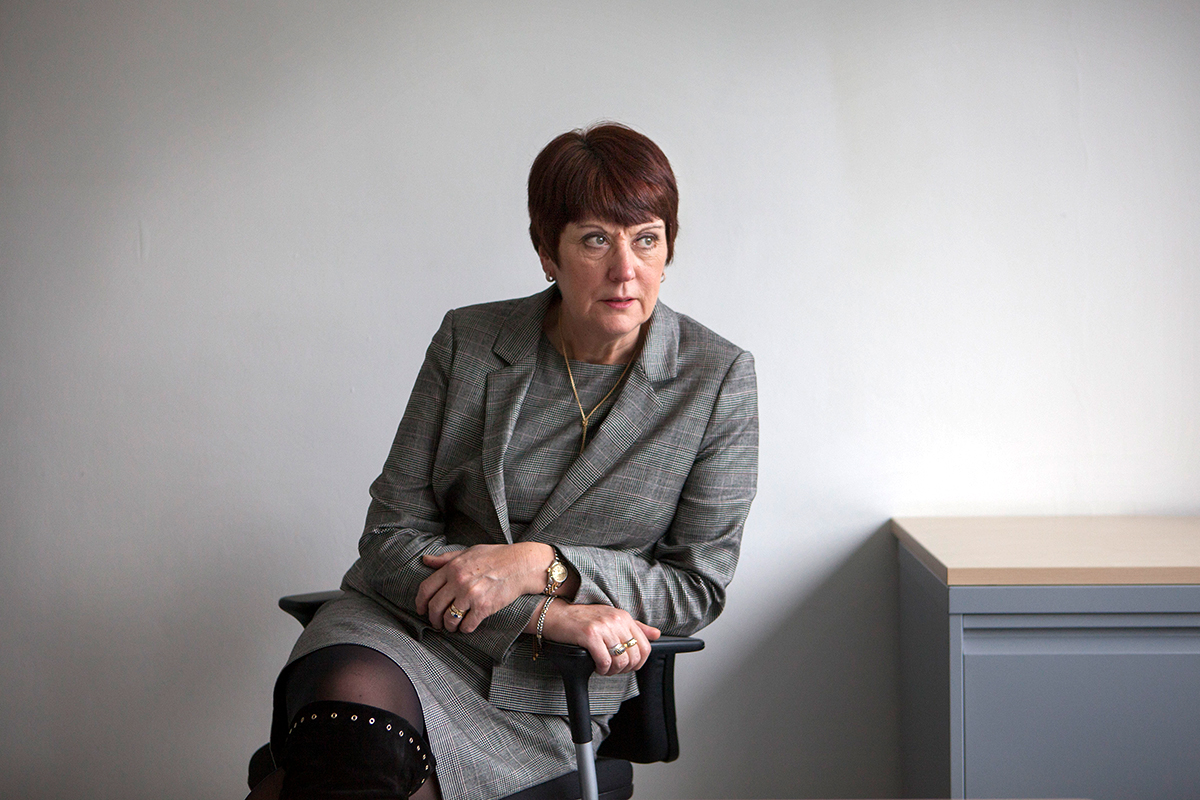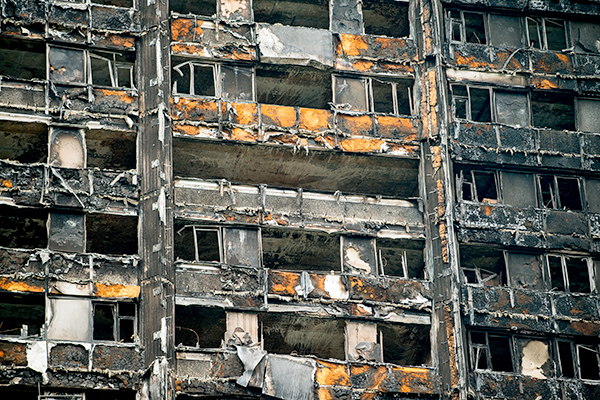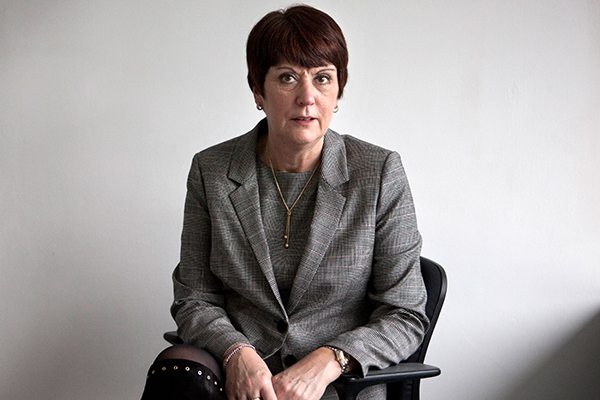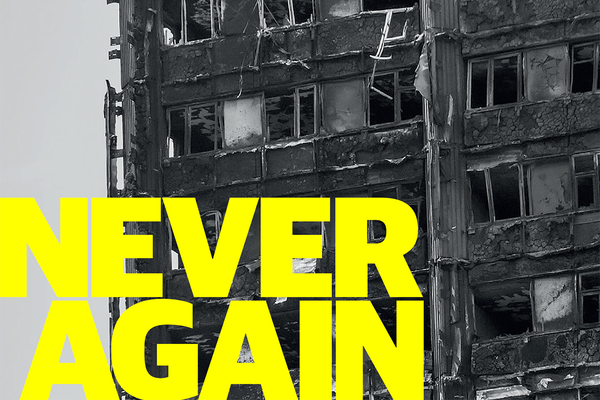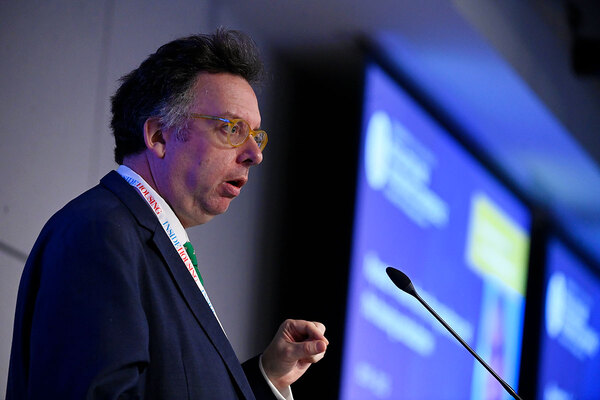Hackitt Review will not ban combustibles or untested cladding
The government will publish its post-Grenfell review into building regulations next week, with sources indicating it will not recommend a ban on combustible materials or the use of untested cladding systems, Inside Housing can exclusively reveal.
Dame Judith Hackitt’s review will focus primarily on the construction industry, rather than the government or the regulatory system.
Multiple groups, including the Royal Institute of British Architects, the Housing Select Committee, and the Local Government Association (LGA), have repeatedly called on Dame Hackitt to recommend bans on combustible materials on tower blocks and on so-called ‘desktop studies’, which use information from previous tests on cladding systems to extrapolate results for untested systems.
The LGA has threatened to call for a new review immediately if such bans are not included in the report.
The Building Research Establishment, which chaired the review, has been accused of a “conflict of interest” over its role by an insulation company and a fire science expert.
The company owns the only laboratory in the UK capable of carrying out official large-scale cladding tests and is paid for fire testing by foam insulation manufacturers.
There have been several calls for the testing regime to be overhauled and for a review of BS 8414, the standard that governs large-scale cladding tests.
Tests commissioned by the Association of British Insurers have suggested that BS 8414 is insufficiently realistic.
Lord Gary Porter, chair of the LGA, told Inside Housing: “It should be a bare minimum to have a ban on desktop studies, but ideally to rewrite the BS 8414 test to be more accurate to real-life conditions, and, until all that’s resolved, a complete ban on any combustible materials on the external face of a high rise or complex building.
“If she doesn’t deal with those things, we’ll be calling on the government to start an immediate new review to take account of the knowledge we’ve got now.”
A source understood to have been briefed on the report added: “It all seems to be about process rather than any particularly eye-catching changes to the building regulations themselves.”
What are desktop studies, and why are people concerned?
Building regulations say cladding systems which contain combustible insulation must be shown to meet specific standards based on “full scale test data”
A ‘desktop study’ is a means of making an assumption about whether or not a cladding system would meet these standards without actually testing it.
It involves using data from previous tests of the materials in different combinations to make assumptions about how it would perform in a test.
This is not specifically provided for in the current guide to building regulations, but the government believes they are loosely drafted to an extent which makes it permissible. It plans to redraft the guidance to include specific rules on the use of desktop studies for the first time.
The alternatives to a desktop study are full scale testing or not using combustible materials.
People are concerned about the process because it is based on assumption: at least one system cleared through a desktop study has failed a full scale test.
This is important for fire safety because mistakes may mean unsafe cladding systems being cleared for use on tall buildings.
The Hackitt Review
Photo: Tom Pilston/Eyevine
Dame Judith Hackitt’s (above) interim report on building safety, released in December 2017, was scathing about some of the industry’s practices.
Although the full report is not due to be published until later this year, the former Health and Safety Executive chair has already highlighted a culture of cost-cutting and is likely to call for a radical overhaul of current regulations in an interim report.
Dame Hackitt’s key recommendations and conclusions include:
- A call for the simplification of building regulations and guidelines to prevent misapplication
- Clarification of roles and responsibilities in the construction industry
- Giving those who commission, design and construct buildings primary responsibility that they are fit for purpose
- Greater scope for residents to raise concerns
- A formal accreditation system for anyone involved in fire prevention on high-rise blocks
- A stronger enforcement regime backed up with powerful sanctions
Never Again campaign
In the days following the Grenfell Tower fire on 14 June 2017, Inside Housing launched the Never Again campaign to call for immediate action to implement the learning from the Lakanal House fire, and a commitment to act – without delay – on learning from the Grenfell Tower tragedy as it becomes available.
One year on, we have extended the campaign asks in the light of information that has emerged since.
Here are our updated asks:
GOVERNMENT
- Act on the recommendations from Dame Judith Hackitt’s review of building regulations to tower blocks of 18m and higher. Commit to producing a timetable for implementation by autumn 2018, setting out how recommendations that don’t require legislative change can be taken forward without delay
- Follow through on commitments to fully ban combustible materials on high-rise buildings
- Unequivocally ban desktop studies
- Review recommendations and advice given to ministers after the Lakanal House fire and implement necessary changes
- Publish details of all tower blocks with dangerous cladding, insulation and/or external panels and commit to a timeline for remedial works. Provide necessary guidance to landlords to ensure that removal work can begin on all affected private and social residential blocks by the end of 2018. Complete quarterly follow-up checks to ensure that remedial work is completed to the required standard. Checks should not cease until all work is completed.
- Stand by the prime minister’s commitment to fully fund the removal of dangerous cladding
- Fund the retrofitting of sprinkler systems in all tower blocks across the UK (except where there are specific structural reasons not to do so)
- Explore options for requiring remedial works on affected private sector residential tower blocks
LOCAL GOVERNMENT
- Take immediate action to identify privately owned residential tower blocks so that cladding and external panels can be checked
LANDLORDS
- Publish details of the combinations of insulations and cladding materials for all high rise blocks
- Commit to ensuring that removal work begins on all blocks with dangerous materials by the end of 2018 upon receipt of guidance from government
- Publish current fire risk assessments for all high rise blocks (the Information Commissioner has required councils to publish and recommended that housing associations should do the same). Work with peers to share learning from assessments and improve and clarify the risk assessment model.
- Commit to renewing assessments annually and after major repair or cladding work is carried out. Ensure assessments consider the external features of blocks. Always use an appropriate, qualified expert to conduct assessments.
- Review and update evacuation policies and ‘stay put’ advice in the light of risk assessments, and communicate clearly to residents
- Adopt Dame Judith Hackitt’s recommended approach for listening to and addressing tenants’ concerns, with immediate effect
CURRENT SIGNATORIES:
- Chartered Institute of Housing
- G15
- National Federation of ALMOs
- National Housing Federation
- Placeshapers
